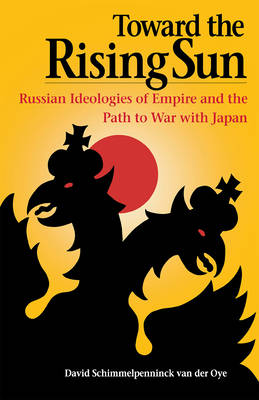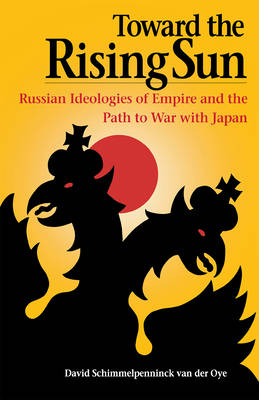
- Retrait gratuit dans votre magasin Club
- 7.000.000 titres dans notre catalogue
- Payer en toute sécurité
- Toujours un magasin près de chez vous
- Retrait gratuit dans votre magasin Club
- 7.000.0000 titres dans notre catalogue
- Payer en toute sécurité
- Toujours un magasin près de chez vous
Toward the Rising Sun
Russian Ideologies of Empire and the Path to War with Japan
David Schimmelpenninck Van Der OyeDescription
What drove Russia to its disastrous war with Japan in 1904? Was it corruption at the highest levels, ignorance of Japan's naval capabilities, or overconfidence in Russia's own military power? In this highly original study, Schimmelpenninck argues that the conflict came about because of St. Petersburg's erratic and confused diplomacy. The key to understanding tsarist involvement in East Asia, he explains, is to examine the ideas of those who competed to impose their visions of destiny on the Pacific.
Drawing from previously inaccessible archives in Moscow and St. Petersburg, Schimmelpenninck presents a new approach to understanding the causes of the Russo-Japanese War. He begins with lively sketches of Tsar Nicholas II and the four leading proponents of expansion in East Asia--famous Inner Asia explorer Nikolai Przhevalskii, Sinophile newspaper publisher Prince Esper Ukhtomskii, Finance Minister Sergei Witte, and War Minister Aleksei Kuropatkin. In each case, ideologies of empire are explored in the context of both European and Russian thought.
Toward the Rising Sun goes on to reinterpret tsarist prewar democracy--from Russia's involvement in East Asia during the 1890s to Admiral Togo's surprise attack at Port Arthur in 1904--using extensive archival sources. Throughout, Schimmelpenninck demonstrates the ties between ideas and policy. Interweaving intellectual and cultural history with international perspectives, he addresses an important aspect of Russian national identity at a crucial point in history and helps to elucidate the struggle between East and West that continues in Russia today.
Spécifications
Parties prenantes
- Auteur(s) :
- Editeur:
Contenu
- Nombre de pages :
- 345
- Langue:
- Anglais
- Collection :
Caractéristiques
- EAN:
- 9780875802763
- Date de parution :
- 03-08-01
- Format:
- Livre relié
- Format numérique:
- Genaaid
- Dimensions :
- 163 mm x 237 mm
- Poids :
- 730 g

Les avis
Nous publions uniquement les avis qui respectent les conditions requises. Consultez nos conditions pour les avis.






